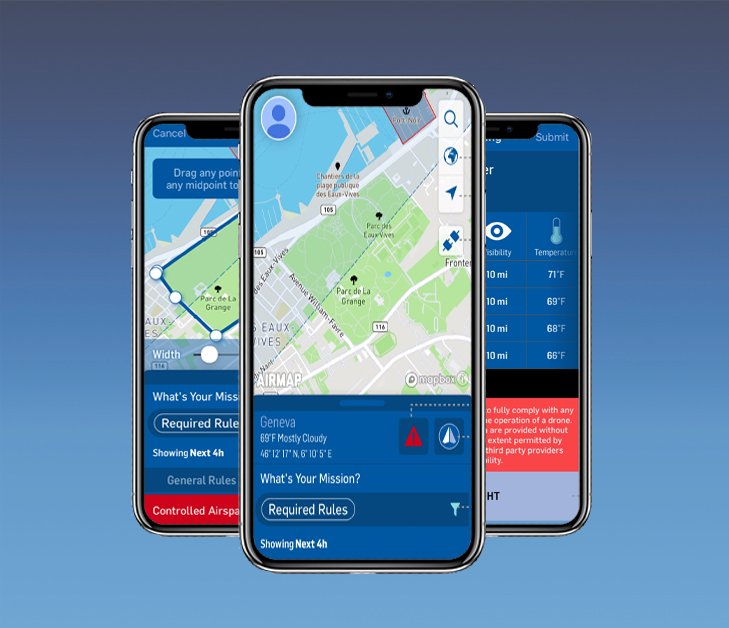
The COVID-19 pandemic has plunged international aviation into an unprecedented crisis. As a result, air traffic in the airspace controlled by Skyguide fell by a total of 60 per cent in 2020 compared with the previous year, due to the pandemic and the measures taken to contain it. At times, traffic volumes were down by as much as 95 per cent. Since around 80 per cent of Skyguide revenue comes from overflight and landing charges, its revenue for 2020 fell to CHF 280 million. The operating result showed an equally historic loss of CHF 164 million.
Skyguide’s operating income fell by 36 per cent last year to CHF 280.5 million (prior year: CHF 438.7 million). Operating expenses were virtually unchanged at CHF 439.4 million (up 0.6 percent compared with CHF 436.4 million in the previous year). Excluding special effects in 2019, expenses would be lower. The net result was CHF -164.2 million (previous year: CHF -4.0 million).
Given the lack of revenue in 2020 and a similarly gloomy outlook for 2021, Skyguide had to seek financial support from its owner, the Swiss Confederation. This was to ensure the company’s liquidity and stability and to enable it to continue to carry out its mandate. Last year, the Swiss Parliament pledged a total of CHF 400 million for the years 2020 and 2021 to support Skyguide. This assistance is conditional and requires ambitious savings plans and raising of the retirement age for air traffic controllers.
Full and reliable services even during the pandemic
As provider of a critical infrastructure for the country, Skyguide continued to provide its services fully and reliably at all times in 2020, a year dominated by the pandemic, and this despite the lack of revenue. It helped to ensure the availability, safety and efficiency of civil air traffic. Important cargo flights for medical care of the country were able to be carried out at all times, as were state or repatriation flights for Swiss citizens stranded abroad.
Development of aircraft movements in 2020 by market segment (in airspace managed by Skyguide) Instrument flights in 2020
Instrument flights in 2020
The slump in air traffic in the airspace managed by Skyguide was particularly marked in the months of April, with a drop of -93 per cent, and May, with a drop of 91 per cent. This figure subsequently rose to a maximum of -53 per cent in August. Skyguide was able to handle 99 per cent of flights on time in 2020.
Performance agreement with the Swiss Air Force fulfilled
Skyguide was again able to meet its performance agreement with the Swiss Air Force in full in 2020 and play its part in ensuring air sovereignty. The pandemic has had almost no impact either on Swiss Air Force flights or on Skyguide’s military air navigation services.
The Air Force continued to conduct its training flights and air policing missions without interruption during the pandemic. Accordingly, military aircraft movements decreased by only 2.9 percent to 91,803 in 2020 (compared to 94,519 in 2019). Skyguide conducted 305 live and hot missions and 2,285 tactical air force operations (compared with 289 and 2,020 respectively in the previous year).
In addition, the LP24 project (Air Police Service 24) created the operational, technical and, above all, personnel requirements to ensure a 24-hour air police service. The Air Force and Skyguide were able to successfully conclude the project at the end of 2020. Since 1st of January 2021, the Air Police Service has been available 24 hours a day.
Walter T. Vogel, Chairman of the Board of Directors of Skyguide, comments on the 2020 business year: “The COVID-19 pandemic has hit the aviation industry and Skyguide hard. Thanks to the support of the Swiss Confederation, we are able to fulfil our mandate in full for all users during this extremely difficult period, despite the lack of revenue. For the future, the European Commission, together with the States, must define new rules for the financing of air navigation services. It has become clear that the current system is inappropriate in such a crisis.”
“We have used the low-traffic period to push ahead with work on forward-looking projects that will help us become more cost-efficient and increase our resilience. Digitalisation, in particular, must be driven forward at full speed at national and international level. It is not only one of the most important contributions to sustainably reduce air navigation services costs, but also allows us to prepare for the safe air traffic of tomorrow with all its unpredictability,” adds Alex Bristol, CEO of Skyguide.
